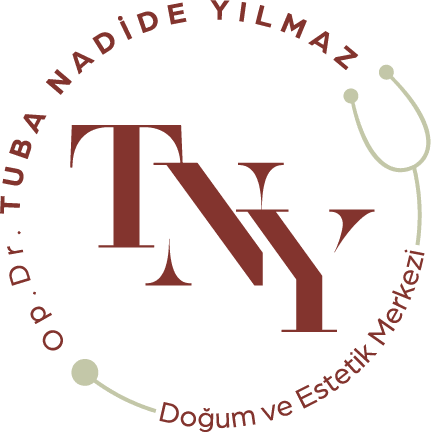In writing this article, we aim to create a comprehensive resource that will answer readers' questions and help them make informed decisions about Birth Control Methods. We will cover topics in detail, provide information and help readers choose the right contraceptive for their needs.
The Importance of Birth Control
Contraception has become an essential element of modern society. Today, choosing the right contraceptive method for family planning and personal health is an important decision. In this section, we will discuss why birth control plays such a critical role and the purpose of this article.
The Importance of Birth Control
Contraception not only prevents pregnancy, but also helps you plan a family that suits your personal lifestyle and needs. Controlled family planning allows you to create a more economically and emotionally stable future. In addition, contraception prevents the spread of sexually transmitted diseases.
History of Birth Control
The historical development of contraception has a very interesting story. The first contraceptives were used thousands of years ago, and a lot has happened since then. In this section, we will explore the history of contraception and understand how it has evolved.
Purpose of this Article
The main purpose of this article is to provide readers with a comprehensive guide to contraception. We will discuss in detail the different methods of contraception, their advantages and disadvantages, their use and their relationship with health. We will also provide information on which method should be preferred in which situations.
Content Summary
This article addresses all the important issues related to contraception. First, we will highlight why contraception is important and examine its history. Next, we will explain the different types of contraception, categorizing them into categories. We then focus on the advantages and disadvantages of these methods. In the following sections, we will discuss the importance of proper use and the health implications of contraception. We will also provide information on what to consider in order to choose the right method. Finally, we will provide insights into the future role of contraception and its impact on society. This article will be a guide to help you make informed decisions about contraception.
Types of Birth Control Methods
To understand the state of contraception in the modern era, it is important to take a look at the different types of contraceptive methods. There is a wide range of contraceptive methods available and in this section we will examine them in detail.
Hormonal Birth Control Methods
Hormonal contraception aims to prevent pregnancy through the regulation of hormones. Some of these methods include:
Birth Control Pills
Contraceptive pills contain the hormones estrogen and progesterone and, when taken regularly, prevent pregnancy by inhibiting ovulation. An operational gynecologist, Opr. Dr. Tuba Nadide Yilmaz emphasizes the importance of choosing the right pill.
Birth Control Patch
The contraceptive patch comes in the form of a patch that sticks to the skin and releases hormones into the body. This can be an alternative for people who forget to take the daily pill.
Birth Control Injections
Birth control injections are a hormonal method administered by a health professional at regular intervals. These injections can be an effective option for many women.
Non-Hormonal Birth Control Methods
Hormonal methods may not be suitable for everyone. For this reason, non-hormonal contraception is also available.
Condoms
Condoms are widely used to prevent sexually transmitted diseases and pregnancy. They are disposable and easily accessible.
Spermicides
Spermicides come as a substance that is placed inside the vagina before sexual intercourse. It blocks sperm movement and prevents pregnancy.
Birth Control Implants
Contraceptive implants are a small device placed under the skin and provide long-term protection. These implants release hormones and prevent ovulation.
Birth Control Teeth
Contraceptive teeth are a type of barrier placed on the cervix. They are used to prevent sperm from reaching the uterus.
Ria Method
Ria stands for Intrauterine Device and refers to a contraceptive device that is inserted into the uterus. This method provides long-term protection and is a non-hormonal option.
Choosing Birth Control by Context
When determining which contraceptive method is best for you, your personal health status and preferences should also be taken into account. Opr. Dr. Tuba Nadide Yılmaz emphasizes the importance of consulting a specialist when choosing the right method.
Advantages and Disadvantages of Birth Control Methods
When choosing contraception, it is important to consider the advantages and disadvantages of each. In this section, we will explore the benefits and challenges of hormonal and non-hormonal contraception.
Advantages and Disadvantages of Hormonal Methods
Hormonal contraception involves the use of hormones such as estrogen and progesterone. In addition to effectively preventing pregnancy, these methods offer some advantages and disadvantages.
Advantages
– High Efficiency: Hormonal methods have a high success rate when used regularly and minimize the risk of pregnancy.
– Regular Menstrual Cycle: Hormonal methods, such as birth control pills, regulate the menstrual cycle and ensure regular menstruation.
– Pain Reduction: Some hormonal methods can relieve menstrual cramps and painful conditions such as endometriosis.
Disadvantages
– Side Effects: Hormonal methods may cause side effects such as headache, nausea and tenderness in some people.
– Prescription Required: Hormonal methods are usually available on prescription and require the supervision of a health professional.
– Does Not Protect Against Sexually Transmitted Diseases: Hormonal methods do not protect against sexually transmitted diseases. Therefore, unprotected sexual intercourse may require additional protection.
Advantages and Disadvantages of Hormonal Methods
Non-hormonal contraception refers to methods that do not contain hormones. These methods can be an alternative to some of the disadvantages of hormonal methods.
Advantages
– Hormone Free Option: Non-hormonal methods are a suitable option for those who do not want to use hormones.
– Protection against Sexually Transmitted Diseases: Non-hormonal methods, such as condoms, protect against sexually transmitted diseases.
– No Prescription Required: Some non-hormonal methods do not require a prescription and are easily available.
Disadvantages
– Low Efficiency: Non-hormonal methods may be less effective than hormonal methods and may increase the risk of pregnancy.
– Difficulty of Use: Some non-hormonal methods can be difficult to use correctly. Therefore, training and counseling may be needed.
– Menstrual Irregularities: Non-hormonal methods do not regulate the menstrual cycle and can cause menstrual irregularities.
Comparison of Other Methods
When choosing a contraceptive method, it is important to consider factors such as personal health status, age, frequency of sexual activity and desire for pregnancy. Opr. Dr. Tuba Nadide Yılmaz emphasizes the importance of counseling and medical supervision and states that each individual should choose the method that best suits their needs.
Use of Birth Control Methods
Effective use of contraception is the basis for preventing unwanted pregnancies. In this chapter, we will emphasize the importance of correct and regular use and provide information on how different contraceptive methods should be used.
The Importance of Correct and Regular Use
For contraception to be effective, it must be used regularly and correctly. This applies to both hormonal and non-hormonal methods. Here's why correct and regular use is important:
– Reducing the Risk of Pregnancy: Using the method correctly minimizes the risk of unwanted pregnancy.
– Reducing Side Effects: Proper use can minimize the side effects of the method. For example, taking birth control pills at the same time every day can reduce side effects such as nausea.
– Protection from Sexually Transmitted Diseases: Barrier methods such as condoms are effective when used correctly to protect against sexually transmitted diseases.
How to use birth control pills?
Birth control pills are widely used as a hormonal method of contraception. To use these pills effectively, it is important to follow the steps below:
1. Doctor's Advice: Opr. Dr. Tuba Nadide Yılmaz gibi bir sağlık profesyonelinin tavsiyesi ile doğru doğum kontrol hapını seçin. Herkesin ihtiyacı farklı olabilir, bu nedenle doktorunuzun yönlendirmesini takip edin.
2. Daily Intake: Take birth control pills at the same time every day. This keeps hormone levels stable and increases effectiveness.
3. Get it with a prescription: Hapları reçete ile alın ve doktorunuzun önerdiği şekilde kullanın. Hapları atlamamaya dikkat edin.
4. Monitor Side Effects: Side effects of birth control pills can vary from person to person. It is important to monitor side effects and share them with your doctor.
Condom Use and Recommendations
Condoms are a contraceptive method that can be used to prevent pregnancy as well as to protect against sexually transmitted diseases. Here are condom use and recommendations:
– Choosing the Right Size: It is important that the condom is the right size. Using a condom that fits well increases comfort and provides protection.
– Careful Opening: Be careful when opening the condom. Avoid using sharp objects and take care not to damage the condom.
– Correct Fitting: It is important to put on the condom correctly. Tip: The tip of the condom should be left empty to prevent sperm accumulation.
– Discard After Use: Condoms should only be used once. Using them again can increase the risk of pregnancy or disease.
Use of Other Methods
There are many other methods of contraception besides the methods discussed in this section. You should talk to your health professional to determine which method is best for you. Opr. Dr. Tuba Nadide Yılmaz emphasizes that a contraceptive method should be chosen according to the needs and health status of each individual.
Proper and regular use ensures that contraceptives are effective. Whichever method you choose, follow your doctor's advice and remember to have regular check-ups.
Birth Control and Health
Contraception not only prevents pregnancy, but can also have significant effects on the health of individuals. Opr. With the expertise of Dr. Tuba Nadide Yılmaz, in this episode we will examine the health effects and risks of birth control.
Hormonal Methods and Side Effects
Hormonal contraception reduces the risk of pregnancy by affecting the body through hormones. However, as with any medical intervention, hormonal contraception can have side effects. Here are some common side effects:
– Nausea: Some women may experience nausea when they start using hormonal birth control. This usually goes away as the body gets used to it.
– Tension and Emotional Changes: Hormonal changes can make some women feel more emotionally sensitive.
– Weight Changes: Hormonal contraception can cause weight changes, but this effect varies from person to person.
– Headaches: Hormonal contraception can cause headaches or increase existing headaches.
Health Effects of Non-Hormonal Methods
Non-hormonal contraceptives do not affect hormones and usually have fewer side effects. However, in some cases these methods can also have some health effects:
– Allergic Reactions: Barrier methods such as condoms can cause allergic reactions to latex or spermicides.
– Irritation: Some individuals may experience skin irritation when using contraceptives containing spermicides.
The Effect of Birth Control on Sexually Transmitted Diseases
Sexually transmitted diseases (STDs) are infections spread through sexual intercourse. Some forms of contraception can protect against STDs, but this protection can vary from method to method:
– Condoms: Condoms provide effective protection against STDs. They reduce the risk of STDs during sexual intercourse.
– Other Methods: Hormonal or non-hormonal contraception does not protect against STDs. Therefore, condom use is recommended for people at risk of STDs.
Opr. Dr. Tuba Nadide Yılmaz, you should consider your health when choosing a contraceptive method. It is important to consult with a health professional to determine which method is best for you. Proper information and follow-up is important to meet your contraceptive needs while maintaining your health.
Contraceptive Choice and Counseling
The choice of contraceptive method should be made carefully according to the health, lifestyle and needs of the person. Opr. Dr. Tuba Nadide Yılmaz's expertise, let's examine the contraceptive method selection and counseling process.
Which Method is Right for You?
There are many factors to consider when choosing a contraceptive method. Here are some important considerations to help you determine which method might be right for you:
– Health Status: Some health problems may affect your choice of birth control. For example, hormonal methods may not be recommended in some cases. You should therefore share your health history with your health professional.
– Lifestyle: When determining which contraceptive method is right for you, you should consider your lifestyle. For example, if it is convenient for you to take a pill on a regular basis, birth control pills may be a good option.
– Frequency of Sexual Activity: The frequency of your sexual activity can also influence your choice of contraception. If you have a regular relationship, you may prefer a long-term method.
Consultation with a Health Professional
The choice of contraceptive method should be based on the advice of a health professional. Health professionals will assess your personal health history and needs and recommend the most suitable method for you.
– Gynecologist Visit: A gynecologist is an expert in sexual health and contraception. Therefore, a visit to a gynecologist is important for choosing a contraceptive method.
– Detailed Information: Your health professional should explain the advantages and disadvantages of each method. This way you can make an informed decision.
Questions to Choose the Right Method
It is important to think about some of the questions you may have when choosing a contraceptive method. Here are some questions you should ask:
- What is the effectiveness of this method?
- Is the method easy to use?
- What are the side effects and how can they affect me?
- Does it protect against sexually transmitted diseases?
- How long will it take to conceive when I want to?
Choosing the right contraceptive method is important both to prevent pregnancy and to protect your health. With the guidance of your health professional and the right information, you can make your choice of contraception and lead a healthy sexual life.
The Future of Contraception
The future of contraception is being shaped by ever-evolving medical research and technological advances. Opr. With the guidance of Dr. Tuba Nadide Yılmaz, let's explore the future role of contraception and new developments.
New Developments and Technologies
Research and development in the field of contraception is enabling the development of more effective and user-friendly methods. These new developments may include:
– Hormonal Implants: Implants are being developed that allow hormonal birth control to become a longer-term option. These implants can be effective for several years, eliminating the problem of users forgetting daily doses.
– Digital Birth Control Tools: Smartphone apps and other digital tools can help women monitor their natural cycle and minimize the risk of pregnancy. These technologies offer more personalized birth control options.
– Making Contraception More Accessible in Society: Many countries are trying to make contraception more accessible to women. These are just some of the efforts being made to reduce the cost of contraception and increase access for young women and low-income individuals.
The Impact of Birth Control on Society
The impacts of contraception on society are of great importance. Understanding these impacts shows that contraception plays a critical role not only for individuals, but also for the overall health and development of society.
– Population Control: By using birth control, population growth can be controlled. This helps sustainable use of resources and access to better living conditions for communities.
– Women's Empowerment: The right to use contraception helps women to get an education, pursue a career and shape their own lives. This is an important step in the fight against gender inequality.
The Future Role of Contraception
Contraceptives will continue to play a major role at both the individual and societal level. Its future role may include:
– Sex Education: Sex education could become more widespread to teach young people the importance of contraception and how to use it. This can help prevent unwanted pregnancies and sexually transmitted diseases.
– Focus on Women's Health: Improved contraception and a better understanding of women's health can offer new opportunities to support women's sexual and reproductive health.
Contraception helps individuals take control of their reproductive rights and make more informed decisions, and is critical to the overall health and development of societies. In the future, better methods and greater access could further enhance this importance.
Frequently Asked Questions
There are many questions and concerns about birth control. In this section, Opr. Dr. Tuba Nadide Yılmaz provides answers to frequently asked questions. These questions will help you gain clarity about contraception.
How Safe Are Birth Control Methods?
The reliability of contraceptives can vary depending on the method used and the person's appropriate use. Here are some reliability factors:
– Hormonal Methods: When used correctly and regularly, hormonal contraceptives are very safe and highly effective. However, forgetting or delaying their use can reduce their reliability.
– Non-Hormonal Methods: Non-hormonal contraception offers reliability when used correctly. However, barrier methods, such as condoms, require correct use.
– Other Methods: İmplantlar ve spiral Long-term methods, such as the use of a long term method, are less dependent on user intervention and offer high reliability.
When choosing any form of contraception, it is important to consult with a health professional. Personal health history and needs should be taken into account to determine the most appropriate option.
At what age can birth control pills be used?
Birth control pills are generally suitable for women who are sexually active. However, age and health should be taken into account. Young girls should talk to a health professional before using birth control pills. The use of birth control pills usually starts after puberty.
Are Birth Control Methods Free?
Whether contraception is free or not depends on the country and region. In many countries, contraceptives are provided free or at low cost as part of health care. However, this can vary depending on laws and policies. Health insurance or state health services may cover these costs.
Misconceptions About Birth Control
There are many misconceptions surrounding contraception. Some of these may include the following:
– Do Birth Control Pills Cause Infertility?: No, birth control pills do not cause infertility. However, the time it takes to get pregnant may change after you stop taking birth control pills.
– Do Birth Control Pills Cause Acne and Hair Loss?: Some women report reduced acne problems and less hair loss when using birth control pills. However, the effects may be different for everyone.
Birth Control and Pregnancy
Birth control is an effective tool to prevent unwanted pregnancies. However, the length of time it takes to get pregnant after stopping birth control when pregnancy is desired can vary from person to person. Those who want to get pregnant after stopping birth control should talk to a health professional to better understand this process.
Birth Control and Breastfeeding
Breastfeeding mothers should be careful when choosing birth control methods. Hormonal contraceptive methods can affect milk production, so may not be more suitable for breastfeeding mothers. Non-hormonal methods may be a better option while breastfeeding. A health professional can help breastfeeding mothers evaluate appropriate birth control options.
These frequently asked questions and answers provide basic information about birth control. However, each person's needs are different, so it is important to talk to a health professional to choose the right contraceptive method.
Conclusion
Contraception is an important achievement of modern medicine and offers a great advantage for societies in terms of health and family planning. Opr. Throughout this article, under the guidance of Dr. Tuba Nadide Yılmaz, we have examined the importance, history, types, advantages, disadvantages, use and health implications of birth control. Now we come to the conclusion.
The Importance and Social Impact of Birth Control
Contraception helps individuals to make informed decisions about planning their families and having children. This contributes to preventing unwanted pregnancies and the spread of sexually transmitted diseases. It also allows women to continue their education, develop their careers and lead healthier lives.
Birth control also has important impacts on societies. Controlled population growth helps to use resources in a more sustainable way. In addition, better education and labor force participation of young people contributes to economic development.
Choosing the Right Method
Choosing a contraceptive method is a personal decision and depends on many factors. Factors such as age, health status, frequency of sexual activity and desire for pregnancy help determine the right method. Therefore, it is important to consult with a health professional. Health professionals recommend the most appropriate contraceptive method based on the individual's needs and preferences.
Birth Control for a Healthy and Conscious Future
Building a healthy and informed future is the main goal of contraception. Preventing unwanted pregnancies helps young people complete their education and achieve their career goals. At the same time, preventing the spread of sexually transmitted diseases is a critical public health issue.
This article aims to provide you with basic information on understanding contraceptive methods and their impact on society. By communicating with a health professional, you can determine the most appropriate contraceptive method for you and take steps towards a healthy future. Remember that contraception is an important part of health and family planning and should be used with informed decisions.









